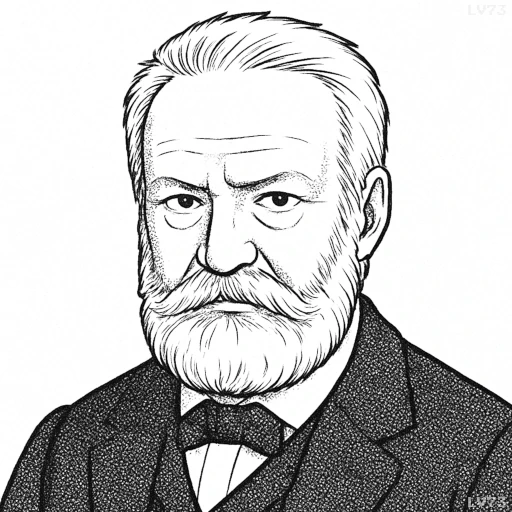“Life is the flower for which love is the honey.”

- February 26, 1802 – May 22, 1885
- Born in France
- Author, poet, playwright
table of contents
Quote
“Life is the flower for which love is the honey.”
Explanation
In this quote, Victor Hugo uses a beautiful metaphor to describe the relationship between life and love. He compares life to a flower and love to the honey that is produced from it. The flower represents the beauty, fragility, and fleeting nature of life, while honey symbolizes the sweetness, nourishment, and fulfillment that love brings. Just as a flower is incomplete without its nectar, life finds its true meaning and richness through love. Love, in this sense, is not only an emotional experience but also something that enhances and completes life, making it sweeter and more profound.
Hugo’s words reflect his Romantic belief in the centrality of love as a force that gives life purpose and depth. He suggests that love is the essence that nourishes life, just as honey is the substance that makes the flower’s existence meaningful. Without love, life might seem barren or unfulfilled, but with love, it becomes something beautiful and complete.
In modern terms, this quote reminds us that love is essential to living a full and meaningful life. Whether in romantic relationships, family, friendship, or self-love, love brings the sweetness that makes all the struggles and joys of life worthwhile. It emphasizes the idea that love is the nourishing force that transforms life, making it richer, more vibrant, and ultimately more complete.
Would you like to share your impressions or related stories about this quote in the comments section?






